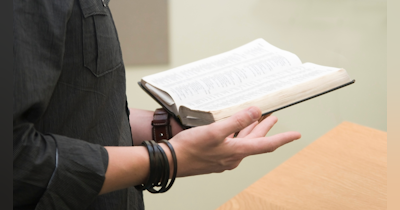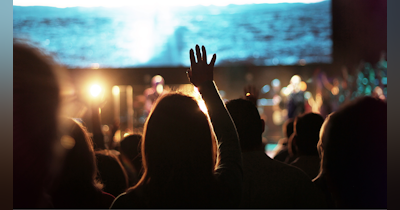It may seem like a no-brainer to a person who has never experienced sexual trauma, but whether your experience was actually sexual abuse can be a common question for survivors of sexual abuse. This can be true for a number of reasons, including the fact that sexual abuse often occurs when a child is very young, and does not yet have a vocabulary for the experience of sexual abuse. A child doesn’t understand what is happening to them, so they may mentally file sexual abuse away as simply an uncomfortable, strange, scary or “bad” experience.
It may seem like a no-brainer to a person who has never experienced sexual trauma, but whether your experience was actually sexual abuse can be a common question for survivors of sexual abuse.
It is even possible that a child who is groomed and sexually abused by a close friend or family member may not feel negative emotions at all, because they do not yet understand that sexual touch between an adult and a child is inappropriate. Once they realize that their sexual interaction with an adult is not socially acceptable, however, they may feel a great deal of shame and guilt for having been a “participant” in their abuse.
Often, a child will feel anxiety, fear, guilt and shame after experiencing sexual abuse, but without the proper understanding of age appropriate sexual behaviors, power dynamics and other “mature” topics, they will not understand why they feel these negative emotions. All a child knows is that something bad happened, and they were a part of it. This often leads a child to believe that they are somehow at fault for their own abuse.
All a child knows is that something bad happened, and they were a part of it. This often leads a child to believe that they are somehow at fault for their own abuse.
When I experienced sexual abuse as a six-year-old, I felt sick, afraid and ashamed. I suffered from terrible stomach aches and anxiety, and felt I had done something “bad,” but I did not understand why until many years later. In my very under-developed mind, I felt as though I had been the instigator of the abuse, or at least that I had willingly participated, and was therefore to blame for the abuse. It’s crazy to think about that now—that a tiny little innocent six-year-old could have been in any way to blame for an adult man preying on her—but that is exactly how I felt for many years after my abuse.
When I was 15 years old, I saw an episode of Oprah where she was talking about sexual abuse, and she said, very firmly, that if anyone had experienced sexual abuse as a child, it was not their fault. Even as a teen, 9 years after I was abused, I couldn’t accept her words. I thought that if Oprah knew what had really happened, she wouldn’t think I was innocent. As an advocate for survivors of sexual abuse, I have come across this mentality over and over again. So many survivors feel a strong sense of responsibility for the abuse they experienced.
There are many different forms of sexual abuse, which can also contribute to a victim's confusion about whether they were sexually abused. For instance, if a victim is not violently assaulted by their abuser, they may wonder if their experience fits the definition of sexual abuse. That’s why it’s so important to know the truth about what sexual abuse actually is.
So, how do we know for sure whether what we experienced as a child is classified as sexual abuse?
WHAT EXACTLY IS CHILD SEXUAL ABUSE?
The American Child Traumatic Stress Network defines Child Sexual Abuse as “any interaction between a child and an adult (or another child) in which the child is used for the sexual stimulation of the perpetrator or an observer.”
There are some more obvious forms of child sexual abuse, such as:
- An adult (or older child )having intercourse or oral sex with a child
- An adult (or older child) kissing and fondling a child
- An adult or (older child) making a child touch their genitals
- An adult or (older child) using a child in the production of pornography
It is important to keep in mind, though, that sexual abuse does not always involve touch. Some “hands-off” forms of sexual abuse include:
- An adult (or older child) showing pornographic images, books, movies or videos to a child
- An adult (or older child) attempting to look at or watch a naked child for their own sexual gratification
- An adult (or older child) committing a sexual act in front of or exposing their genitals to a child.
Whether touching is involved or not, if an adult or an older child uses a child in any way for sexual stimulation, that is sexual abuse.
Whether touching is involved or not, if an adult or an older child uses a child in any way for sexual stimulation, that is sexual abuse.
If you experienced any of the above at the hands of an adult or older child, then what you experienced was sexual abuse. Again, to the outside observer, this may seem like a no-brainer. But the psychological effects of childhood sexual abuse can confuse survivors, especially if they were groomed by an abuser whom they trusted.
That’s why it is important to note that the definition of child sexual abuse does not have anything to do with the mindset, feelings or cooperation of the child. Children do not understand sexual activity and they are not able to consent to it, especially not with an adult. Abusers use many tactics to force, coerce or groom children into sexual activity, often using their position of trust to accomplish their goal: using a child for their own sexual gratification.
Children do not understand sexual activity and they are not able to consent to it, especially not with an adult.
If you feel guilty about the sexual abuse that happened to you as a child, please know that this is a very common reaction to abuse. Many survivors feel responsible for the abuse they experienced, but these feelings are based in shame and trauma, not truth. The truth is that despite how abuse makes you feel, adults who sexualize children are always to blame for abuse. Sexual abuse is never the fault of the victim.
If you are struggling with feelings of guilt or responsibility for the sexual abuse you experienced, I recommend this episode of Survivor Sanctuary:







